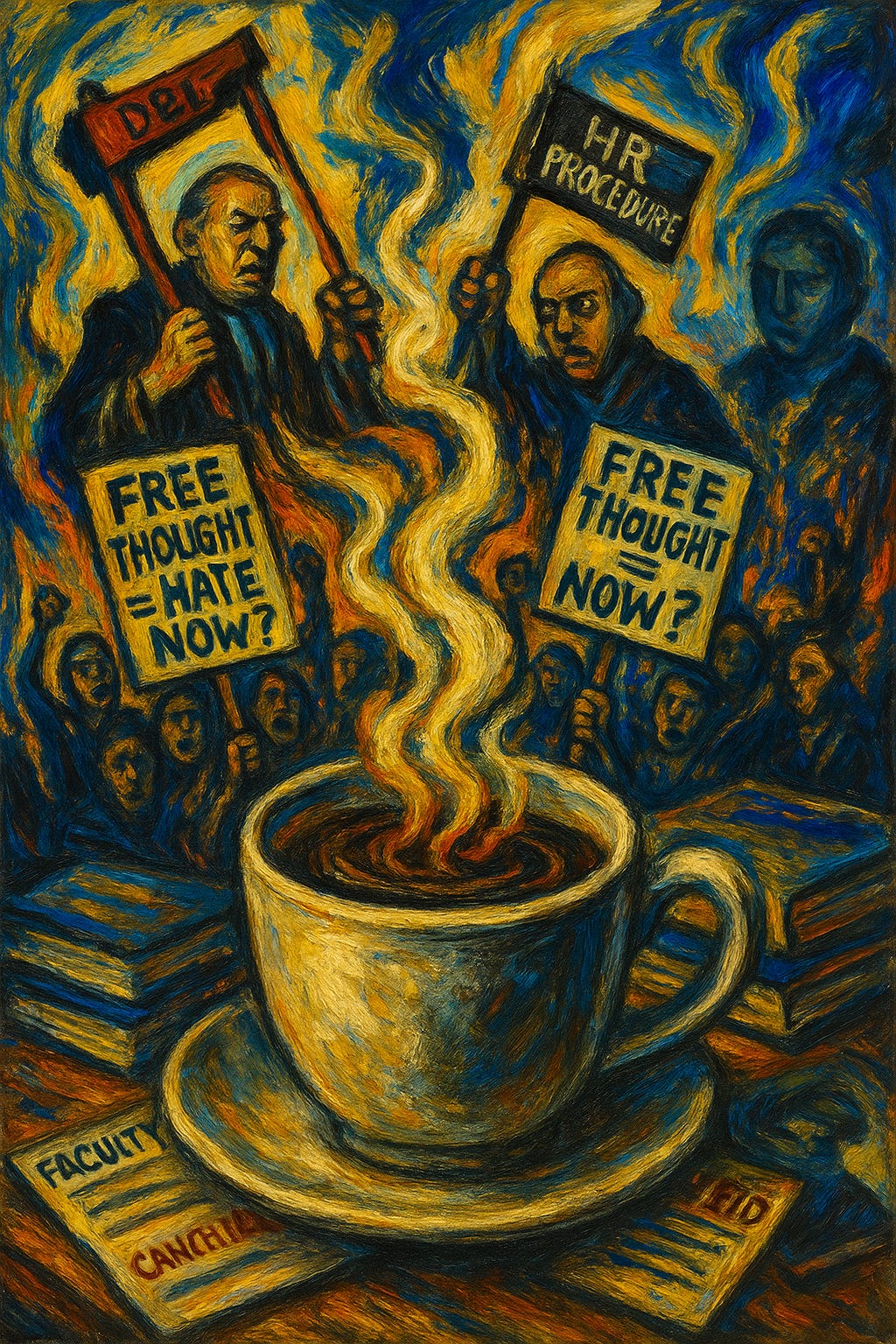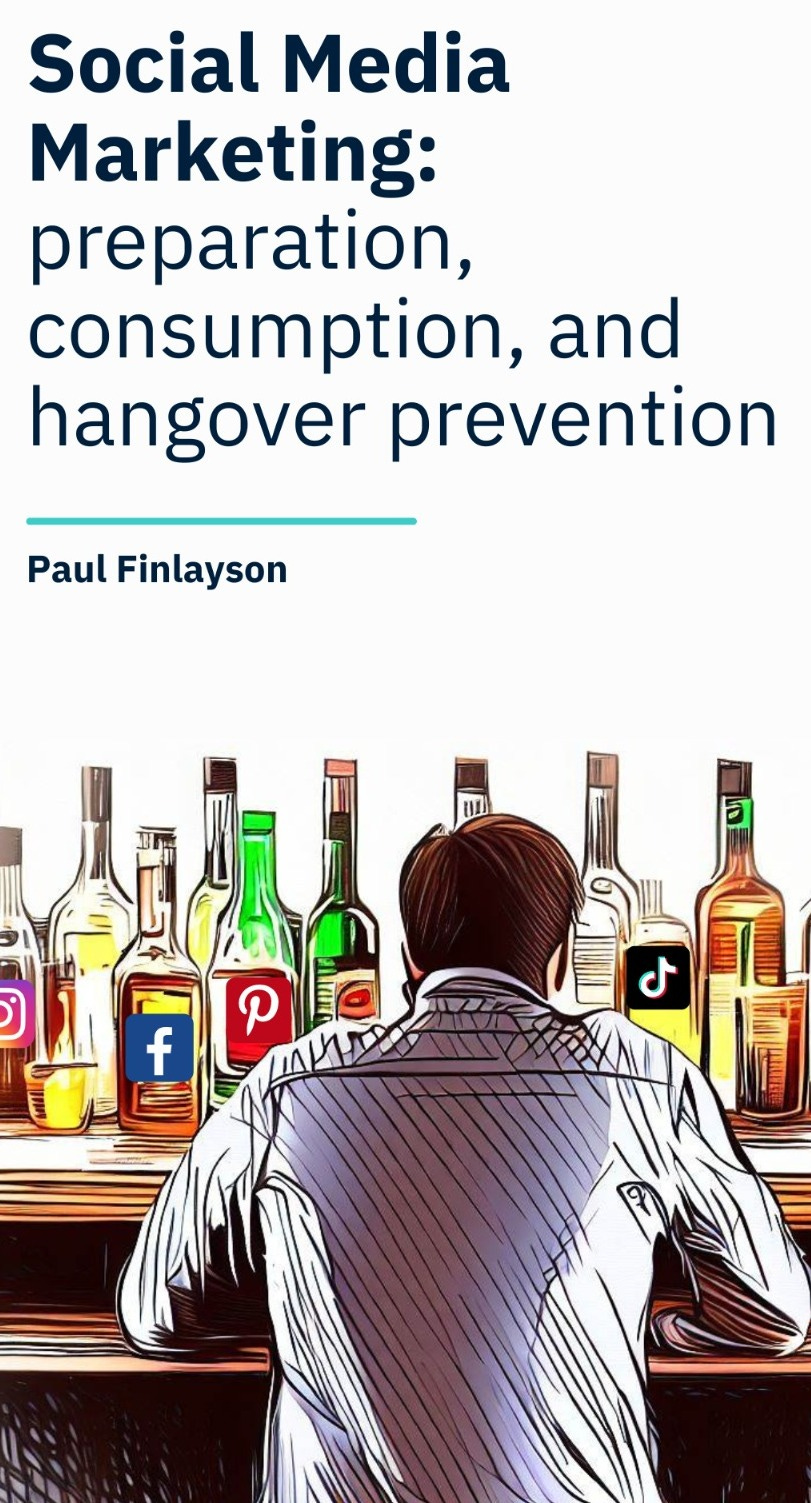I am Being Pushed toward the Sharp Revolutionary Blades of Cancel Culture.
And will I get out alive? Part One.
The context for the story in National Post articles (links below)
I had started writing an essay on how dating apps can damage relationships.
My academic suspension, though, left me anxious. The surreal experience of falling (or being pushed) into slowly grinding cancel culture gears is so relevant that I can’t avoid it.
(Even though my title uses a guillotine metaphor, I prefer gears. I couldn’t find a good free grinding gears photo. )
And indeed, it has become personal.
If we do not choose the type of society we live in, we will have one made for us. We are not powerless victims or lost souls drifting on ice floes, dependent only on prayer to bring us closer to the safety of the shore.
Nobody has pushed us out to sea. We are just on a massive ship called Culture. However, we cannot assume that those who guide the cultural rudders are not sacrificing societal gains for their immediate personal gain. We must keep an eye on them.
Culture and cultural norms move slowly and rarely make sharp turns, like giant container ships traversing the ocean. Right now, I fear Canada's direction.
One should assume academic institutions are open to ideas; I remember sitting in my dad's faculty lounge when I was eight, learning and participating in societal discussions. I remember these University of Manitoba professors; I was young, but they listened to me. They loved inquiry. Those were good days.
However, after teaching for many years, I have observed an entirely different culture today. The university's administration is not a partner in facilitating learning. Indeed, I see no evidence that the administration cares about learning. They certainly care about academic activities, classroom numbers, and the appearance of being invested in learning; this is typical in a marketplace culture, where perceptions are as important as reality.
Full-time faculty have been mainly replaced by sessionals, desperate souls hired and fired each semester. Of course, administrators are predominantly full-time. It’s odd how the ratio of administrators to students keeps climbing over the ratio of teachers to students!
Administrators have implemented several incentives to enhance student learning. Indeed, the natural incentive for a sessional is to do the minimum, not rock the boat, get your grades in on time and purchase student happiness with a fistful of grading dollars.
In a few years, students will be in a better position to assess the quality of their education, and we will have moved on. By then, the schools will have invested their tuition in new couches and discovered more Vegas-based January academic conferences.
How, you might reasonably ask, could something as blindingly obvious as learning—learning-the ostensible raison d’être of an academic institution—become a fringe activity, a sort of quaint elective barely clinging to the org chart?
It’s quite simple. Universities now serve a higher master: convenience, cowardice, and the commodification of credentials. When I point out that students are writing final exams on laptops next to other students openly displaying the entire answer key, the institutional response isn’t alarm—it’s a bureaucratic yawn followed by a “shut up, that’s just how it is.” Ah, yes, let us all genuflect before the holy trinity of “the way things are,” “nothing can be done,” and “please don’t rock the boat.”
When I note that a class with a 96% average is, in fact, not a triumph but a grotesque failure of academic standards, I’m told to mind my own business. (Incidentally, the professor responsible was later hired full-time. Bully for her. Excellence, you see, is now measured by how well you avoid conflict and how high your grade inflation floats.)
And where are the other faculty during all this? Silenced. Sidelined. Sedated. The place is packed with precariously employed sessionals so nervous they apologise to the fridge for opening it too fast. We are not cultivating courage in academia—we are breeding a culture of mousy compliance. Don’t expect them to ring the alarm bell. They’re too busy trying not to get fired by a vice-dean named Tiffanie with a clipboard and a god complex.
You want to analyse this through the lens of Michel Foucault—patron saint of the left, and France’s most over-cited flirt with structural nihilism? Fine. Let’s. Power, as Foucault reminds us, is not merely top-down—it flows through institutions, policies, and the rituals of submission. In today’s university, power is hoarded by administrators—people who don’t teach, don’t publish, don’t research, but somehow accrue six-figure salaries and the moral authority to police thought. Meanwhile, those who do the teaching—contract faculty—exist in a state of institutional purgatory, eternally “under review.”
This would all be mildly amusing if it weren’t so grotesquely Soviet. And I say that with some intimacy. I live with a Russian mother-in-law who, though she doesn’t speak much English, knows the smell of fear and suspicion all too well. It perfumed the Soviet air she grew up breathing. The chill of it has never quite left her.
And now, it’s here. I feel it.
But I was raised differently. In my father’s home, an academic household, the air was thick with books and sharpened with argument. Sometimes we argued to the point of red faces. Sometimes we hurt each other’s feelings. And sometimes, yes, we discovered something. The outcome didn’t matter as much as the fact that we could argue—and that no one would be driven from the dinner table, let alone their career, for a poorly worded point.
But today? Today, disagreement isn’t something you sweat through—it’s something you file a complaint about. Feeling offended is now evidence. Being hurt is now a tribunal-worthy trauma. Instead of challenging a statement, countering it, discussing it—God forbid learning from it—the impulse is to destroy the speaker. Not to engage, not to debate, but to scheme, conspire, and defame.
Someone sends a private message critical of Hamas—an organisation whose charter makes Mein Kampf look like light reading—and instead of disagreeing, instead of refuting, a small cabal of offended fabulists set about ending his career. They want him unemployed, unemployable, insolvent. The joy isn’t in proving him wrong—it’s in seeing him miss a mortgage payment. The moral thrill isn’t in truth—it’s in ruin.
This is not a disagreement. This is schadenfreude dressed in drag as social justice. It is vengeance masquerading as virtue. It is medieval bloodlust delivered by email.
And it has no place in a civilised society—unless that society has decided to rename cowardice “inclusion,” lies “lived experience,” and malice “HR procedure.”
In which case, burn the degree. Keep the bookshelf.
Because at least the books won’t lie to you.
That cancel culture is driven not by wild-eyed mobs in the streets but by university administrators and students is, to borrow from Orwell, a perversity so profound it would make a stone blush. These are the very institutions supposedly devoted to learning, inquiry, and intellectual resilience—and yet they behave like overprotective, neurotic parents raising their children in hand-sanitized hermetically sealed bubbles, bleating about “harm” and “safety” while cultivating a generation of cultural hemophiliacs utterly unprepared for the rough-and-tumble pathogens of actual life.
Try explaining that to the academic equivalent of agoraphobics—these intellectual shut-ins who haven’t ventured outside the cognitive terrarium of their ideology in years. You’d have better luck convincing a Jehovah’s Witness to fund a champagne bar.
University administrators, once dull but decent stewards of academic order, have now been reborn as high priests of performative virtue, peddling moral theatre to the gods of market logic and bureaucratic optics. Their goal is no longer education—it is brand management. They believe, with a near-theological conviction, that classroom value can be indexed to enrolment numbers and Net Promoter Scores, that the student’s inflated GPA reflects pedagogical success rather than the academic equivalent of pump-and-dump fraud.
Reduce costs by hiring sessionals on semester-by-semester contracts. Raise grades to boost “student satisfaction.” Keep faculty muzzled through the constant threat of non-renewal. You don’t have to fire the heretics when you can just not invite them back for the next liturgy. Easy. Clean. Bloodless.
And yes, I was stupid enough to keep my socks on my feet instead of stuffing them in my mouth.
Throughout my entire career, I have never had a meaningful conversation with a university administrator about what we are doing with our students. I don’t mean in terms of KPIs, learning outcomes, or other alphabet soup metrics. I mean: what is the intellectual arc? What kind of minds are we shaping? How do we battle the manic digital quicksand that has made attention spans shorter than a TikTok apology video?
Silence.
But allow them to flaunt their social virtue, and suddenly it’s all hands on deck. Behold: a committee of middle-aged white women who, after several exhausting months of grant-seeking and self-congratulation, manage to purchase an Aboriginal painting to place beneath a stairwell. This, we are told, is a “step forward” in reconciliation. For Instagram, it’s a godsend. For actual Indigenous engagement? Well, maybe one day, they’ll meet a student who identifies as Indigenous and manage to exchange more than 30 seconds of airtime, assuming there isn’t a photographer in the way.
Meanwhile, I watch as these same administrators read pre-written speeches—heads down, voices monotone—before circulating the room like public relations Roombas in designer shoes, shaking hands with people they wouldn’t recognise in a faculty meeting. Their mission isn’t conversation. It’s optics management for the morally anxious.
This container ship—this great barge of culture we call post-secondary education—is not merely drifting. It is adrift, listing, captainless, and painted in the pastel language of “care,” “respect,” and “inclusion,” all while the hull fills with institutional cowardice and bureaucratic rot.
My cancellation—or whatever term we’re using this week for ideological liquidation—is apparently due to my “intemperate” comparison of Hamas and their supporters to Nazis. But I wonder: is there a temperate way to describe a fascist death cult that boasts about beheading civilians and posting snuff videos for clout? Are we meant to compare them instead to the Rotary Club?
My students—those fragile, ever-watchful avatars of righteous indignation—have emerged from their postmodern haze long enough to denounce me, not for anything I said to them, mind you, but for a comment not directed at them, not about them, and almost certainly not even seen by them until someone with an axe to grind waved it under their collective nose like a truffle pig hunting scandal.
Did they consider the context? Of course not. Did they ask what I was reacting to? No. The message was a reply to someone openly calling for the erasure of Israel and, by extension, its Jewish population. But context, like intent, has been excommunicated. What matters is how something feels, and if it feels like a microaggression, then it must be a macro-offence.
Am I Jewish? No. But the way the Jewish community has rallied around me, I’m beginning to wonder if I qualify for some sort of honorary membership. Is there a card? A ceremony? Do I still get to keep my phone on Saturdays?
The irony, of course, is that the people accusing me of intolerance are those most incapable of debate, most committed to moral theatre, and most allergic to facts. We have created institutions where truth is optional, offence is sacred, and cowardice is called “allyship.”
It is not merely absurd. It is obscene.
As to the students who have embraced the frenetic joy of shaking their cancellation sticks at me and snarling at me while tossing a fine selection of the clichéd modern human rights tribal team words -"safety, hate, feelings, misc. Phobia," etc. - for them, it’s all exciting and fun. Who said that university was boring?
While they may not get an excellent education, they have discovered a great hobby and developed a bloodlust that propels cancel culture forward and is thirsty.
The entire dynamic between administration, students, and faculty is decidedly Stalin-era Soviet, or perhaps the French Revolution is a more appropriate metaphor.
However, I suspect Stalin spent more time among the masses than the modern university administrator.
I'm still trying to figure it out; I don't want to diss the old Georgian boy. The gulag is the DEI sessions, and the guillotine is the termination letter that wishes you the best in your future endeavours. And “future endeavours” in teaching at my age are unlikely.
Regardless, it is a wretched, cruel, anti-intellectual charade of justice. It is to make a decision, remove the instructor after 13 years of dedicating himself to the students, heart and soul, but remove the venues for his passion, fracture his relationship with his precious students and replace him with a more compliant troll that reads PowerPoints to 80% empty classrooms, responds to students with bureaucratic professor speak, and creates a number for each student at the end of the course, another solid Potemkin storefront of learning to sell the university’s wares.
Look at the pretty basket shop!! Trade your basket of those course grades at the end of four years; we will call it learning! And if we call it something, that makes it so because it makes it so. Right? It’s a word! If it’s a word, it’s true.
It's a sad state of affairs. The monster ship of academic culture moves slowly, but it moves. Look at where it is, from a culture of ideas, growth, productivity, creation, and vitality to a culture of fear, conformity, and chasing symbolic ends while ignoring that it is the refinement and execution of the process that matters, that grades are signals of learning, not ends in themselves, and that you jump that middle piece at significant risk.
Giving a piece of paper to someone wearing a thin polyester robe in a room stuffed with bored, overdressed people is a meaningless ritual if there isn’t much real education. It’s just a well-funded obstacle course.
This post doesn’t break any school gag order. Still, even if it did, it's a free country, and they have no authority under the law to completely cut me off from my community, smearing me in the process with impugned guilt and finally rubbing their hands together in Machiavellian glee.
It’s still mostly a free country.
Thank you, Paul
If you found value in this article and wish to support my ongoing work, especially during my 18-month suspension, please consider leaving a tip. Your support helps me continue producing uncensored content on critical issues.
Post script: Fired on July 7 2025, no severance.











Paul, I’ve been a subscriber for a few months. My first readings of your work revealed a witty, intelligent person. You challenged your readers to think out of the post. Over the months, we have learned and vicariously experienced your pain, frustrations, and angst. Most of your readership, probably, appreciates your situation. We love your clever assessments of things political.
However, I want to be with you as you turn the corner on this understandably bitter hand that fate has dealt. I want to hear how you have proactively grabbed the bull by the horns and have left the pain of the university’s malfeasance, punitive bias, and BS behind you. I want you to be the role model of all of us who have suffered through different, but equally painful life experiences.
I want you to succeed. I want you to prosper. I want you to become the politician who rights the wrongs. The motivational speaker who stirs your fellow citizens to action. I want to read Part 2 of this article series and learn how you did it.
My very best wishes for a the best, brightest future for you and your family.
Doug
Not sure the category of ‘Honorary Jew’ exists, but by your principled and brave stance I believe you have earned the title of ‘Righteous Gentile’. How silly of me to assume you are Jewish. Sadly, how few of you exist! Kol Hakavod!